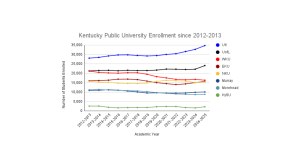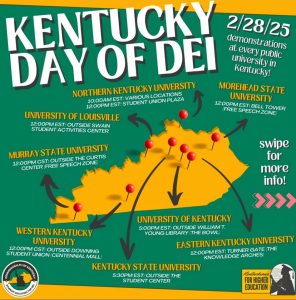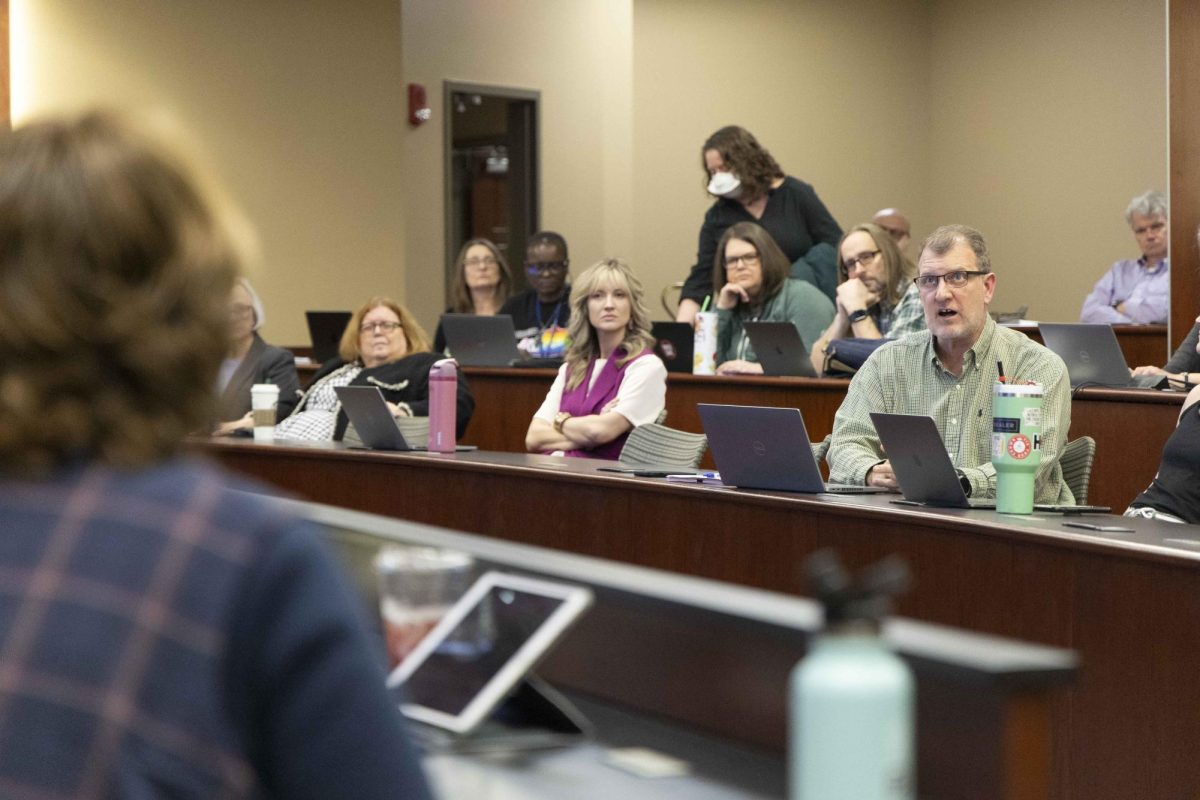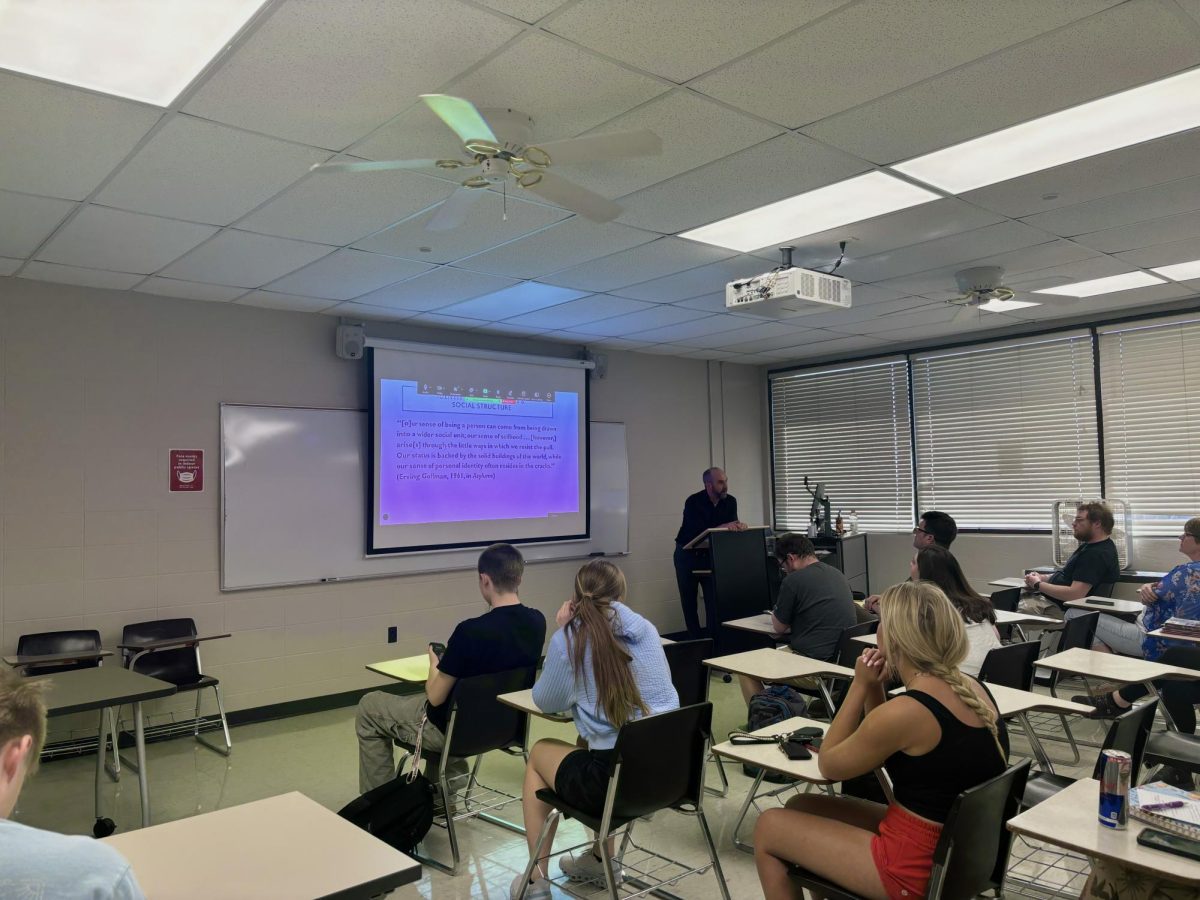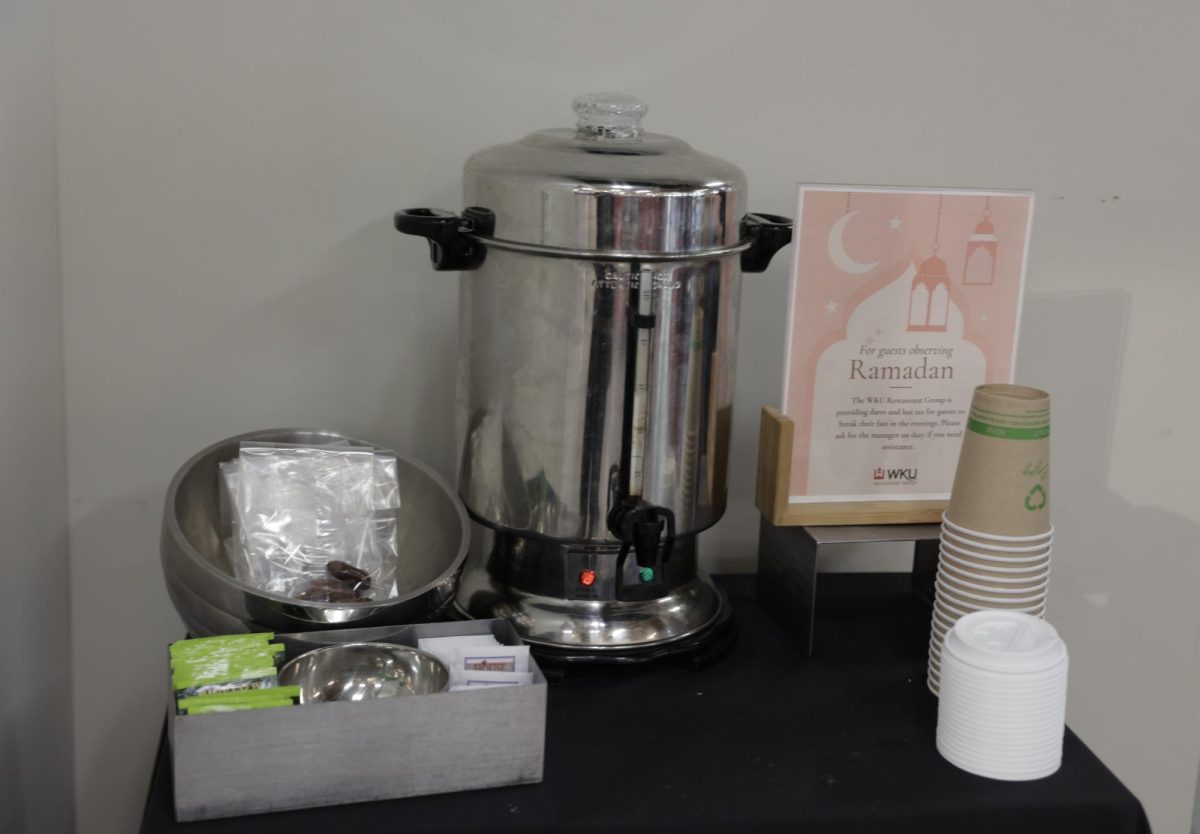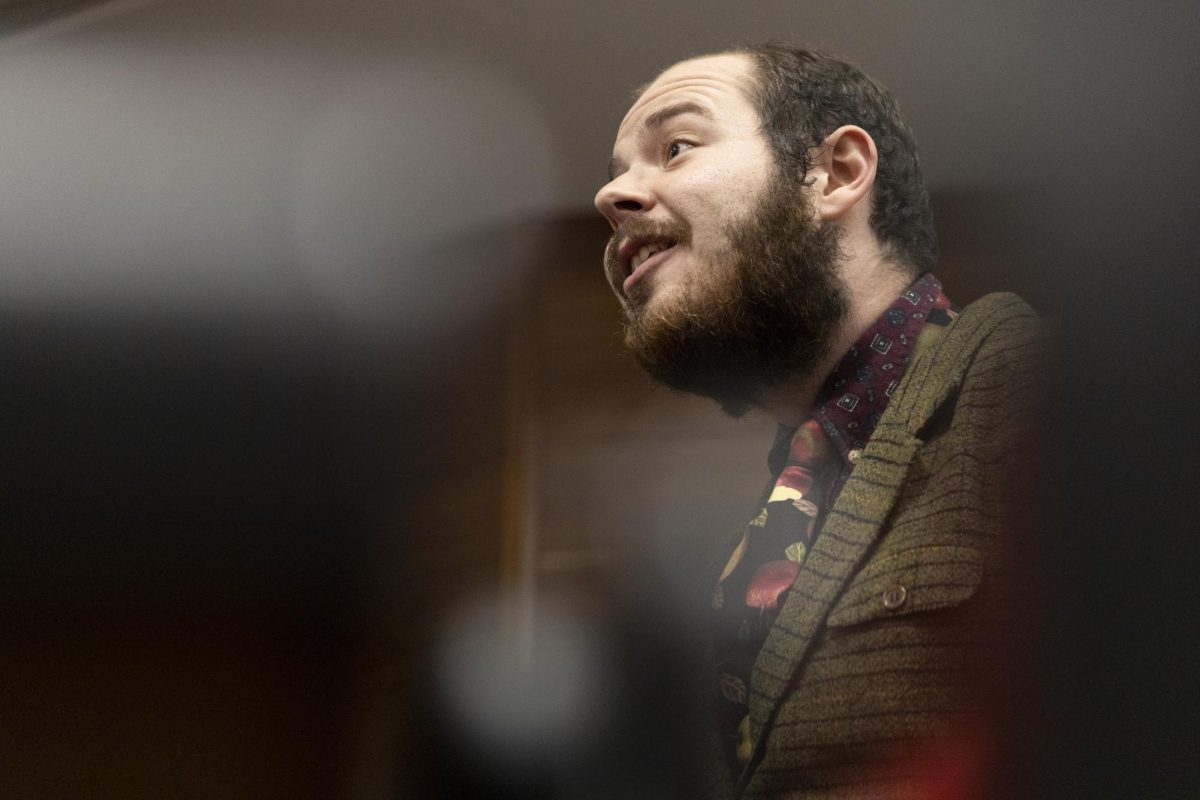Professors discuss facts, fake news at event
March 27, 2017
Two professors teamed up last Thursday to teach students “how to spot fake news” at an event hosted by the Residence Hall Association.
Associate art professor Guy Jordan and journalism professor Mac McKerral led the discussion on how to avoid falling for click-bait schemes and fake news websites.
“Knowing things allows you to know the scope of your own ignorance, which is really important,” Jordan said.
Jordan’s main point of his portion of the lecture was “facts are not trivial.” He said building upon knowledge makes contextual associations which allows a student to make sense of those facts in relation to one another.
Based on the idea of how to avoid fake news, Jordan said one’s instinct, comprised of knowledge and experience, leads people to understand when they are being deceived by forms of fake news.
“In the age of Photoshop, take every image you see with a grain of salt,” Jordan said and gave an example of how to spot fake photographs.
He showed a picture that had showed up in multiple major newspapers of an Iranian missile launch in 2008. The photo showed four missiles being launched; however, evidence showed that Photoshop was used on the image to duplicate the real amount of missiles and created more than were actually present.
McKerral began by saying fake news is not a new thing and has been around since news began to circulate.
McKerral said that, in a way, the term “fake news” is being branded and is showing up in the vernacular that is used today in the news.
“I’ve not watched one television interview in the past three weeks where someone from the administration is being interviewed where they didn’t use the term fake news,” McKerral said.
McKerral provided a list of the types of fake news to be aware of: propaganda, sponsored content or advertising, video news releases, parody/comedy and “fake news” which is driven through social media.
Following that list, he provided a list of ways to reduce one’s risk of being duped by fake news. These included: don’t pass it on, find the primary documents, media literacy, “social media beware!”, fact-checking drills, use the tools, set aside the politics and “opinionists” are not necessarily journalists.
McKerral said more online information has been archived digitally in the last two years than ever before in the history of digitalization.
He said a factor that makes our society more prone to being duped by fake news is “the very polarized and very political environment that we live in.”
“Everything that we do these days is either red or blue; everything is liberal or conservative,” McKerral said.
When asked if she had ever been duped by fake news before, Liz Vian, a member of the Residence Hall Association and attendee of the event, said, “I can’t think of a specific time when I have been, but people don’t realize it. They don’t go back and look at things.”
After both professors gave their speeches, they opened the floor to have a discussion with the audience members and took any questions. The meeting lasted roughly an hour and a half.
“We create technology, but technology also creates us,” Jordan said during closing remarks.
Reporter Kacie Brockman can be reached at (270) 745-0655 and







